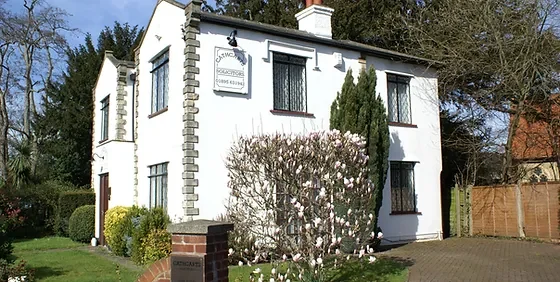What is probate?
Probate is the legal process of dealing with a deceased person’s assets and estate. A grant of probate is the legal document that allows an executor of a will to access the deceased’s finances. The probate process can often be complicated as it addresses all of the following and more:
- Identification of the deceased’s assets and liabilities to determine the value of the estate
- Verification of who is entitled to inherit the estate via the will or rules of intestacy
- Paying inheritance tax
- Applying to the Probate Registry for a grant of representation
- Selling the deceased’s assets
- Settling the deceased’s debts
- Preparing the estate accounts
- Transferring assets to the beneficiaries
What does a probate solicitor do?
A probate solicitor does all of the legal work associated with administering the deceased’s estate and helps you to apply for probate, ensuring you don’t submit incorrect information which can result in a penalty. Additionally, our probate solicitors help with::
Legal formalities
When a partner or close family member dies, the emotional cost of dealing with all the necessary legal formalities and paperwork can be overwhelming – especially given the stress of the occasion.
From dealing with wills or intestacy to estate administration and inheritance tax, there are certain steps that need to be taken.
Probate requirements
To help you at this difficult time, our experts will discuss your specific probate requirements during a no charge, one hour meeting at our offices to help you understand the process, as well as the general problems and liabilities you might be exposed to when administering an estate.
Our specialist probate team is extremely experienced in dealing with a wide range of issues around deceased estates. Our lawyers are dedicated to helping families through the legal maze at a time when their emotions are still very raw and to ensuring the process runs as smoothly and efficiently as possible.
Locating the will
Although it may not seem like your first priority, it’s important to ascertain as early as possible if a will has been made and then to locate it. This is because not only does a will deal with the distribution of any estate in the longer term, but it may also include specific instructions about the funeral itself. It can be extremely comforting to the person who has responsibility for making the arrangements to know they are carrying out the last wishes of a loved one.
Presuming a will exists, the deceased will have named an executor to take responsibility for administering the estate – this can be a complex and time-consuming process, especially for the layman, and the advice of our professional probate practitioners can be invaluable.
Intestacy
If, on the other hand, no will has been made, then intestacy rules will apply. These cases can sometimes be even more complex, meaning it is equally important to consult a probate practitioner.
Grant of Probate
For an executor, one of the first steps is to apply for a Grant of Probate to enable the deceased’s assets to be administered appropriately. Although it is possible to make a personal application to a District Probate Registry, the guidance of an expert can be extremely helpful.
B P Collins provides executors with a questionnaire to help them collate the information necessary to apply for a Grant of Probate and then takes care of the application.
Inheritance tax
It is also at this point that the issue of inheritance tax arises. An inheritance tax account must be completed and submitted to HM Revenue and Customs. A shortened account needs to be prepared for estates which are not subject to inheritance tax and, in both these instances our legal team can complete the necessary accounts and forward the relevant information.
Clients are assured that our solicitors deal promptly and sensitively with probate including cases of intestacy and provide effective advice if an estate is contested.
Inquests
The loss of a family member or friend can be very distressing. The process can be made even more difficult, if the loss is unexpected and without an obvious explanation. When this happens, the case may be referred to a Coroner. Our criminal law team can help you gain a better understanding of the inquest process, make contact with the Coroner’s office and ensure your voice is heard. We will analyse the evidence and if necessary, obtain second opinions on the evidence. We will also represent you at the inquest hearing asking questions to assist the Coroner.
How much do solicitors charge for probate?
Our specialist team is extremely experienced in dealing with a wide range of issues around deceased estates. We offer compassionate advice and are dedicated to helping unravel any confusion and ensure the process runs as smoothly and efficiently as possible.
While the cost of our probate services will vary depending on your specific circumstances, we have put together a few examples of the costs involved on our ‘Probate price and service transparency’ page. The cost information provided is general and should be used as a guide only.
Price and service transparency (Click here)
Our specialist team is extremely experienced in dealing with a wide range of issues around deceased estates, we offer compassionate advice and are dedicated to helping unravel any confusion and ensure the process runs as smoothly and efficiently as possible.
View our price and service transparency here.
Get in touch
For further information or advice please contact our probate lawyers on 01753 889995 or enquiries@bpcollins.co.uk.































